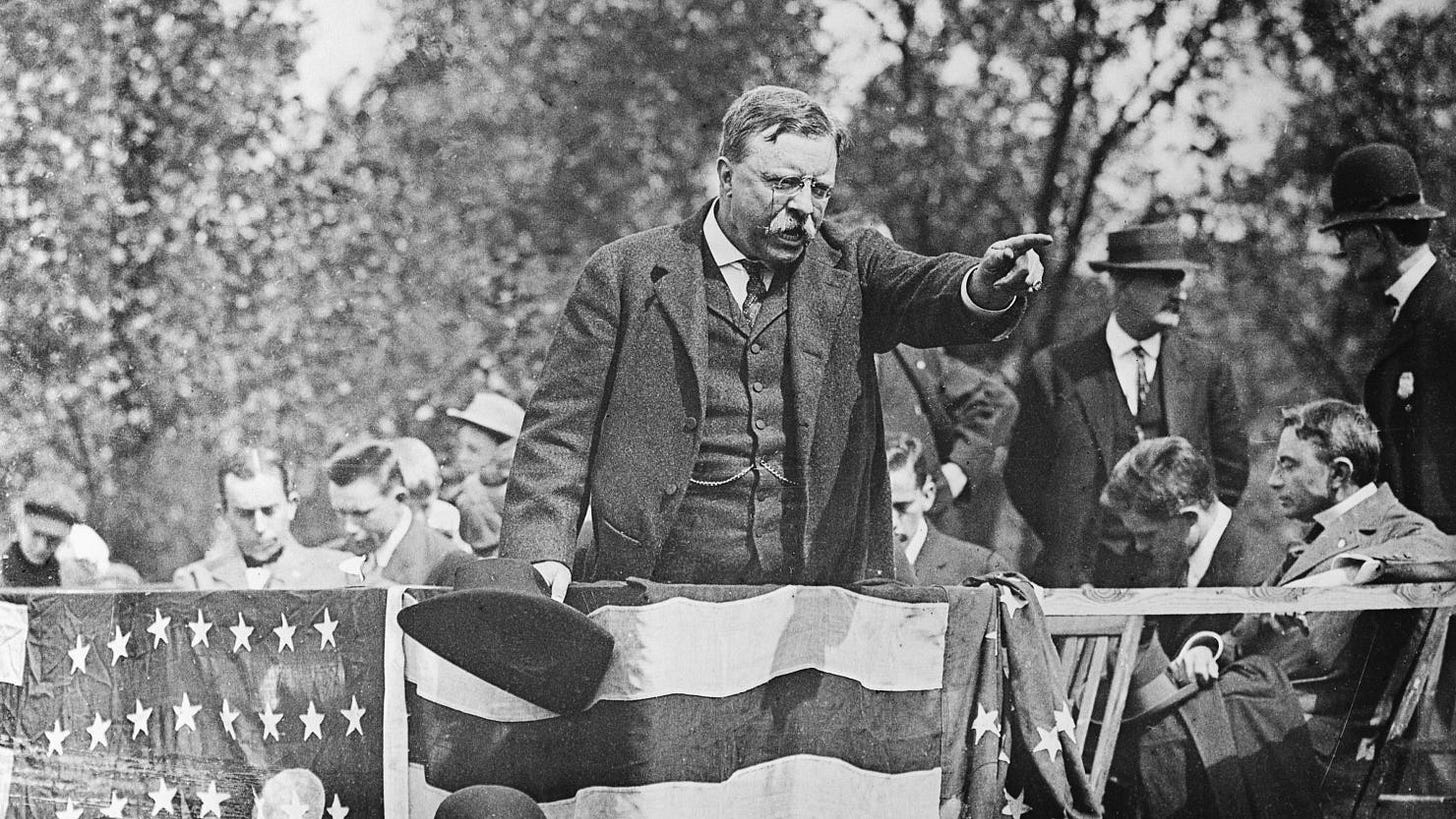When Congress does not legislate don’t be surprised if a president acts
And what will Trump do on Day 1 if he wins?
Is it right?
No. Article II of the U.S. Constitution says the President must “take care that the law be faithfully executed.” That is very different from an executive and the agencies he leads deciding to pursue a policy and then casting about for legal justifications.
But presidents of both parties have been more than happy to do this for at least a century. Teddy Roosevelt, who held the White House from 1901 to 1909, reconceptualized his job as serving as a steward for the American people, rather than a person who executes the law and who was elected by electors rather than the public itself.
To do what they please, presidents use executive orders, executive memoranda, and their authority to reprogram money appropriated by Congress. They also use regulations, which brings me to President Joseph Biden.
The Wall Street Journal compiled a list of Biden administration rules to craft new policy that have ended up struck down by the federal judiciary. The topics include:
student loan forgiveness;
the definition of the word “sex” in Title IX of the Education Amendments Act;
the breadth of coverage of the Clear Air Act;
the breadth of coverage of the Clean Water Act; and
employers’ use of noncompete bans.
What do these regulatory actions have in common?
Answer: These are subjects on which Congress has not legislated in a long time.
As I tell students and young Hill staff again and again: our constitutional system is one of separate branches contending for power. When Congress fails to legislate or be clear whether the law applies to a particular circumstance, the decision-making authority will be seized by the executive and judicial branches.
If Trump wins, what will he do on day 1?
Predicting Donald J. Trump’s behavior is a fraught exercise. He has shown himself to be an impetuous person who innately resists routinization and process. During his first term in office, he very quickly did things that caught his political opponents and a lot of people off-guard.
(Aside: Alexander Hamilton must be rolling over in his grave at the prospect of a second Trump administration. He pined for steadiness in administration.)
Yet, I do think that there is a method for improving the odds of guesstimating correctly. It goes something like this:
Look at the issues that are a longstanding part of his brand (e.g., U.S. trade with China) and those he has discussed during the campaign this year (e.g., transgender persons participating in women’s sports), and type them into one column of a spreadsheet.
Read the Republican presidential platform, and add the issues from it to the column: erect a border wall, deport illegal immigrants, expand U.S. energy productions, etc.
Skim Project 2025 and look for policy ideas that either echo Trump or sound like the sort of thing he’d like (e.g., “The next Administration should assert leadership over, and guidance to, the State Department by placing political appointees in positions that do not require Senate confirmation”) and put those in the column. Yes, I know Trump has said he knows nothing about Project 2025, but certainly some of the people who wrote for the volume will end up in his administration. And people are policy.
Having compiled those many issues, then ask of each of them, “Which can be done through an executive order?” Place an EO next to them in the column to the right. Those issues very likely will get done on the first day or during the first month—and these policies can take effect immediately. (Note: Executive orders are an efficient way to make policy and to please interest groups or single issue voters. Even if the policy gets tied up in court, a president can win the issue —if not the policy— by issuing an executive order.)
Use that method and you have good odds of guessing what Trump would do first.
But what about all the other issues you have listed? Well, a similar method can be applied.
Then ask which of these issues can be addressed through regulation? Type an R next to those issues, which the administration will advance in the rulemaking process, which often takes many months to finish.
The you take the rest of the issues, the ones that clearly require an act of Congress (like abolishing the Department of Education), and type L next to them. Then you can watch to see whether Congress shows any interest in passing a law or if the president can do no more than stump on the matter.
Again, these methods are not high tech and they are messy to grind through, but they will better clue you in to what Trump would do first and what will take more time.






Who knows if Trump will win, but I can imagine him sitting in the President's room of the Capitol, just having been sworn in, signing a bunch of executive orders to reinstate those, especially on immigration, that Biden terminated on his "Day One," plus a few more on immigration and a regulatory freeze (or, requiring agencies to withdraw or terminate two regulations for every new one it proposes). The stack of executive orders and nominations on that desk once used by Abraham Lincoln might be quite high.